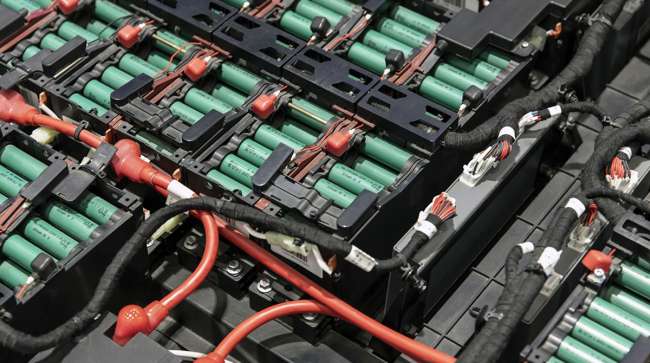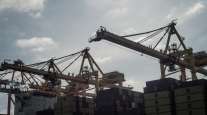Bloomberg News
Trade Wars May Slow Battery Price Plunge

[Stay on top of transportation news: Get TTNews in your inbox.]
Battery prices are set to fall for a third straight year — though not nearly as much as in the past, due to rising trade tensions and metals prices, according to analysts at BloombergNEF.
Lithium-ion battery prices are forecast to drop 3% to around $112 per kilowatt-hour, the analysts found. That compares to a decline of 20% in 2024 and 13% the year prior.
Ever-cheaper batteries are key to help drive demand for electric vehicles and improve the efficiency of power grids, reducing the need for fossil fuels that cause climate change. Improvements in battery technology and manufacturing, as well as rising market competition, have contributed to the price decline.
This year, however, a key variable will be the degree of protectionism in trade policies pursued by President-elect Donald Trump after he takes office next week. Any additional tariffs would add to those imposed by President Joe Biden, who targeted areas including batteries, solar cells and EVs.
More 2025 Battery Trends
- This will be a critical year to see if leading battery manufacturers in South Korea and China will be able to hit targets to produce solid-state batteries in 2026.
- Energy storage additions are set to grow by 14%, the latest in a series of records, as larger batteries help drive down costs.
- Countries across the world are trying to drive long-duration energy storage that’s critical to securing power on the grid without relying on fossil fuels. A number of government tenders for those technologies this year could help drive investment, potentially lowering their costs.
If Trump were to follow through on a campaign pledge to impose 60% tariffs on imports from China, it would lead to a 16% increase in the price of U.S. energy storage systems, BNEF found. Even with those added costs, imported batteries from China would still be more economical than those made in the U.S., the researcher said.
Trade tensions have already ramped up in recent weeks, with China proposing export controls on battery-related technologies and the U.S. blacklisting Chinese companies including battery giant Contemporary Amperex Technology Co. Ltd.
The prices of metals key to batteries — lithium, nickel and cobalt — could rise in 2025 and in the coming years because of tariffs as well as oversupply in the market, leading some producers to cut back on new projects.
Want more news? Listen to today's daily briefing below or go here for more info:




